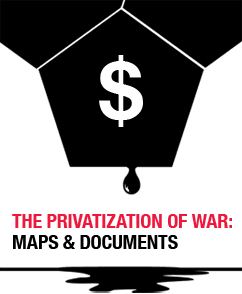Grecia
Factory Takeovers in the European Mediterranean Area: Self-Managed Companies in France, Italy and Greece

Azzellini, Dario. 2024. “Factory Takeovers in the European Mediterranean Area: Self-Managed Companies in France, Italy and Greece.” CESCONTEXTO. 36: 38-46.
Jak pracownicy przejmują kontrolę w dobie kryzysu kapitalizmu

W lutym 2016 roku kilkunastu byłych pracowników zakładu obróbki drewna w niewielkiej greckiej miejscowości Patrida, około 60 kilometrów od Salonik, powiedziało „Dość!”. Od 2008 roku byli oszukiwani przez właścicieli. Obiecując rychłą wypłatę, szefowie nie wypłacali pracownikom pełnej pensji, zredukowali godziny pracy i ogłosili upadłość firmy – nie informując o tym oficjalnie. Sytuacja nie poprawiła się, a pracownicy nigdy nie ujrzeli swoich pieniędzy. W grudniu 2015 roku zakład został zamknięty.
Recent years have seen a proliferation of recuperated workplaces around the globe, laying the foundations for a truly democratic workers’ economy.
Workers’ Control in the Crisis of Capitalism

In February 2016, a dozen former workers of a small woodworks plant in the small Greek town of Patrida, some 60 kilometers from Thessaloniki, had had enough. Since 2008 they had been tricked by the owners. With a promise to pay back everything soon, the bosses did not pay the workers their full salary anymore, reduced working hours and announced bankruptcy without making it official. But the situation never improved and the workers never saw their money. Finally, in December 2015, the plant closed.
Das Fenster zu gesellschaftlicher Veränderung hat sich in Griechenland und Spanien wieder geschlossen
Keine Verdichtung unter dieser Nummer

Društvena transformacija zahteva otvoreni put
Dario Acelini (Dario Azzelini) je teoretičar i politički aktivista koji živi na relaciji Berlin – Karakas. Tokom njegove nedavne posete Beogradu i učešću na konferenciji „Vratimo socijalizam u igru“ imali smo priliku da razgovaramo o različitim temama kojima se bavio u svom radu – od toga zašto je Maduro izgubio izbore, preko odnosa umetnosti i politike do radničkih preuzimanja fabrika po Evropi.
Dario Azzellini: "Crisis and workers' control," talk at Athens Biennale
Dario Azzellini: "Crisis and workers' control":
Ocupar, resistir, producir - Vio.Me.
Vio.Me. en Tesalónica fabricaba pegamento industrial, aislamientos y otros materiales de construcción químicos. En 2010 los trabajadores y trabajadoras fueron enviados cada 4 ó 6 semanas de vacaciones sin cobrar sueldo. Cuando en julio de 2011 el propietario dejó de pagar los salarios totalmente, los trabajadores decidieron ocupar la planta y hacerse cargo de su propio futuro. En febrero de 2013 Vio.Me.
Occupy, Resist, Produce – Vio.Me.
Vio.Me. in Thessaloniki used to produce industrial glue, insulant and various other chemically derived building materials. In 2010 the workers agreed to be sent on unpaid leave every 4-6 weeks. Then the owners started reducing the workers’ wages, assuring them that it was only a temporary measure and they would soon be paid what they were owed. The owners’ main argument was that profits had fallen by 15 to 20 per cent. When the owners broke their promise to pay the back wages, the workers went on strike demanding to be paid.
Occupy, Resist, Produce – Vio.Me.
Vio.Me. in Thessaloniki produzierte früher Industriekleber, Isoliermaterial und weitere chemische Baumaterialien. 2010 gaben die ArbeiterInnen ihr Einverständnis, alle vier bis sechs Wochen in unbezahlten Urlaub geschickt zu werden. Dann reduzierte der Fabrikbesitzer die Löhne der ArbeiterInnen mit der Zusage, es handele sich nur um eine vorübergehende Maßnahme und die Zahlung der Restsumme würde bald erfolgen. Als Hauptargument für die Maßnahme führte er an, die Profite seien um 15-20 Prozent gefallen.
























